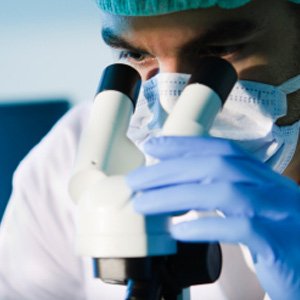
British scientists have for the first time used regenerative medicine to fully restore an organ in a living animal, a discovery they say may pave the way for similar techniques to be used in humans in future.
The University of Edinburgh team rebuilt the thymus – an organ central to the immune system and found in front of the heart – of very old mice by reactivating a natural mechanism that shuts down with age.
The regenerated thymus was not only similar in structure and genetic detail to one in a young mouse, the scientists said, but was also able to function again, with the treated mice beginning to make more T-cells – a type of white blood cell key to fighting infections.
Read: Teen 'grows' new cheekbones
The regenerated thymus was also more than twice the size of the aged organs in the untreated mice.
"By targeting a single protein, we have been able to almost completely reverse age-related shrinking of the thymus," said Clare Blackburn from Edinburgh's Medical Research Council (MRC) Centre for Regenerative Medicine, who led the research.
Boosting immunity
"Our results suggest that targeting the same pathway in humans may improve thymus function and therefore boost immunity in elderly patients, or those with a suppressed immune system."
She added however, that while the treated mice were making T-cells, her research could not yet establish whether the immune systems of the older mice were strengthened.
And before the technique can be tested in humans, she said, researchers will need to conduct more animal experiments to make sure the regeneration process can be tightly controlled.
More on the thymus
The thymus is the first organ to deteriorate as people age. This shrinking is one of the main reasons the immune system becomes less effective and we lose the ability to fight off new infections, such as flu, as we get older.
Read: Baby foreskins used to grow hair
Regenerative medicine is a fast-growing area of research, mainly focused on stem cells – the master cells that act as a source for all types of cells and tissues in the body. One of the central aims is to harness the body's own repair mechanisms and manipulate them in a controlled way to treat disease.
Manipulating a single protein
Blackburn's team, whose work was published in the journal Development, said they targeted a part of the process by which the thymus degenerates – a protein called FOXN1 that helps control how key genes in the thymus are switched on.
They used genetically modified mice to enable them to increase levels of this protein using chemical signals. By doing so, they managed to instruct immature cells in the thymus – similar to stem cells – to rebuild the organ in the older mice.
Rob Buckle, the MRC's head of regenerative medicine, said this success with the mouse thymus suggests organ regeneration in mammals can be directed by manipulating a single protein – something he said could have broad implications for other areas of regenerative biology.
Read more:
Scientist grows eye in lab
Scientists grow teeth in mice
Pigs to grow human organs




 Publications
Publications
 Partners
Partners















